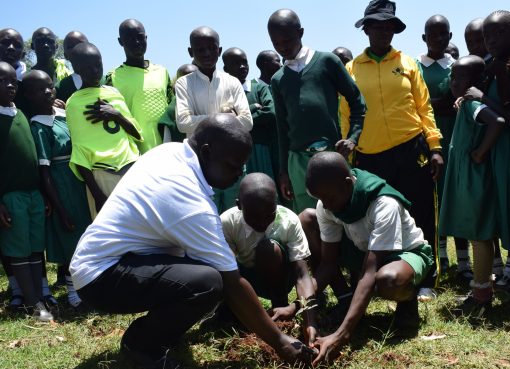A survey shows that Kenyan women are dominating in top mechanized jobs, although men still own most businesses.
International Women’s Day this year celebrated women who were breaking the bias and in Kitengela, Kajiado County, two such women have been breaking the bias for 10 years.
Josephine Mwende, a widow and a mother of six, says she started working in the manufacturing plant of Athyplast Enterprises, a large-scale manufacturer of plaster, gypsum powder, organic fertilizer, lime, cornices, medallions and gypsum boards 10 years ago.
She learnt how to operate the machine by observing what her instructor did. “I observed what the operator of the machine was doing with a shovel and how he measured the quantities making sure he didn’t end up with mud. After he did it three times, he gave me the shovel and I was in business,” she says as she continues working on the fertilizer.
She is grateful for the work that she is doing, although it may seem like heavy labour to others, saying she has been able to put food on her table and educate her children one of whom recently completed his high school education.
“When my husband died, I was a housewife and he was the sole provider for the family. His sudden death opened my eyes. I could not sit and beg for food from my relatives yet I am healthy and strong,” Josephine adds.
Phanice Robai Edward, another woman working at the company, says that working in such a job was a challenge during her first few years.
Her work involves carrying heavy sacks on her back and loading them into lorries.
“The first week of working I thought to myself, I can’t possibly do this work. It looked hard and is meant for men,” recalls Robai.
She says that when a fertilizer bag was placed on her back, she almost threw it down and walked away.
“At that time, it felt so heavy but now we are used to it. We carry the 25kg bags to the vehicles that come to collect the plaster or fertilizers we have made and some days we do 100-200 rounds in a week,” she says.
Robai encourages both men and women to look for work that can sustain their families decently and not shy away from work that looks like heavy labour.
“People come looking for work here but when they see the type of work available, they run away. They shouldn’t be intimidated by the amount of work. We earn a decent living and provide for our families,” she says.
Kimani Nyamu the owner of the Athyplast Enterprises Kenya says that he prefers working with women as they were more consistent in work as compared to men.
“I prefer employing women as they know the importance of work and have families to feed. I have employed some men and they would come during the first shift and when it’s break time around 10.40 AM, they leave never to be seen again claiming that the work is too tedious.
“Others will come and complete a shift and they go drink the money and get a hangover the next day making them not fit to work,” he notes.
Kimani encourages more employers in the industry not to turn away women when they come looking for work in stations that are deemed for men.
“I would like to encourage those who are in the manufacturing industry like me to hire more women and they will be surprised at the diligence they put into work. I’ve worked with women for over 10 years and I love the work they do and I would like to hire even more,” he says.
The industry did face challenges during the COVID-19 pandemic as sourcing for materials was hard and business was low and layoffs had to be made.
A September 2021 Kenya Association of Manufacturers survey indicates that male owners seem to prefer having women run their factories, with 89% of their senior managers being women.
By Vivian Mbinya





